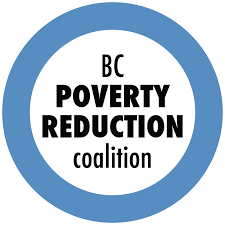Family Day OP/ED from BC Poverty Reduction Coalition
The B.C. budget will be released tomorrow (February 19) and we’re waiting with bated breath to see the investments in B.C.’s first poverty reduction strategy!
Given that the provincial government has been talking about this since they came into power, this is really the time for it to put its money where its mouth is. The budget is where we see its priorities and what it truly values.
Within the throne speech delivered last week, it was clear that a “belief in people” is at the core of its values:
“This government believes in British Columbians…Government is making different choices to make life better, so that B.C.’s bright future and unlimited potential is shared with everyone, not just the few.”
This should be achieved through a poverty reduction strategy that charts a path toward a long-term vision of a British Columbia where no one lives in poverty, and all are treated with humanity and dignity. This is what making life better for everyone looks like.
The poverty reduction plan must also recognize the devastating impacts of colonization, continuing to this day, and be grounded in a foundation of human rights, as well as responsibilities to each other. This could be realized through the government’s commitment “to true and lasting reconciliation with Indigenous peoples.”
The B.C. budget must reflect all of this through significant investments in concrete policy actions to bring these values to life.
Without that, we will suffer from “cruel optimism”, a term I recently heard that describes believing in widely held values without undertaking the work of ensuring they remain true. Canadians are often cruel optimists, taking their values for granted, but the provincial government recognizes that realizing values takes hard work every day.
“Making life better for people starts with the choices we make every day. This government is putting people first.”
The government has made these choices over the last year. As the throne speech highlights, we have seen investments in housing because “[e]very person in this province deserves a place to call home”; we have seen investments in health care because “[p]ublic health care is a right”; and we have seen the “most significant child care investment in B.C. history” to build universal child care. All in service of their belief that “[q]uality public services are the key to stronger, healthier communities.”
What choices will we see to realize its values this year?
Given that it’s Family Day, let’s talk about one of those choices being expanding and enhancing B.C.’s child benefit. We are the only province where the benefit is cut off when a child reaches six years old; everywhere else in Canada has a child benefit up to age 18. We are failing our children by not investing in them, and we all pay the price.
And this Family Day, let’s also think about those not in families. One in three single adults lives in poverty in Canada, far higher than the overall poverty rate of one in 10; and, in the recently released HungerCount 2018 report from Food Banks Canada, almost half of all food bank users are single adults.
Many of those are struggling to survive on deeply inadequate social assistance rates. At $710 per month for a single person on welfare, this is far below the actual cost of living and is almost impossible to bounce back from. There is a direct correlation between the rising levels of homelessness on our streets and low welfare rates. Our social safety net, which any one of us may need at some time in our lives, is now more of a cage than a net.
To tackle this depth of poverty, B.C.’s first ever poverty reduction strategy should include an immediate, meaningful raise in income and disability assistance rates with a long-term aim of reaching the poverty line through successive increases. This is a concrete way to “believe in people”.
There’s really no good reason why we cannot take this action. The economic argument is equally as strong as the moral one. We are currently paying $8 billion to $9 billion per year for the costs of poverty, including health care and criminal justice costs. An accountable, bold, and comprehensive poverty reduction plan is a preventative approach that goes far beyond Band-Aids and actually tackles the root causes. It is an approach that ultimately saves both lives and money.
These may be long-term gains but, as the Canadian Centre for Policy Alternatives assures us, we “can afford major new investments in the common good” right now. According to the CCPA, we can expect a combined surplus of $2.8 billion leading into the current fiscal year. There is also $1.37 billion for this fiscal year already set aside in last year’s budget for “priority spending initiatives to be developed for future budgets”.
This is why I am hopeful about tomorrow’s budget. We clearly have the public money to make a significant difference in tackling the challenges of poverty, inequality, and homelessness. We have a responsibility to take care of each other and one of the most powerful ways to do that is through significant government investment.
So we expect a B.C. budget tomorrow that truly makes life better for everyone, and treats all people with humanity and dignity. Let’s bring these values to life.
Trish Garner is the community organizer with the B.C. Poverty Reduction Coalition.
To send a final email to the minister of social development and poverty reduction in support of bringing these values to life in Budget 2019, please visit ABCPlan.ca.



























Comments